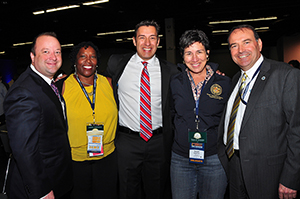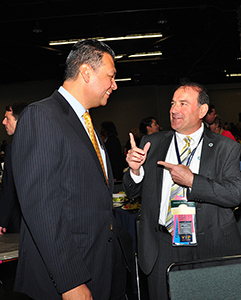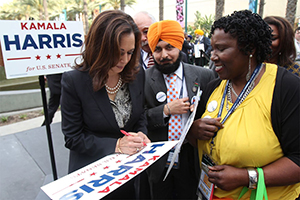Jun 10, 2015

ACSS wrapped up the 2015 CA Democratic Convention on Sunday, May 17, 2015. The convention was held in Anaheim, CA (May 15-17, 2015). There were three days of speeches, rallies, workshops, and important elections. Speakers at this year’s convention included Senator Elizabeth Warren and Representative Barney Frank (Ret.), CA Assembly Speaker Toni Atkins, CA Senate President pro Tem Kevin De Leon and many other public officials. ACSS' Political Team met with many leaders from all levels of state government.
"It was an exciting time to be in Anaheim at the California Democratic Party Convention and to further advance the ACSS plight!” commented Frank Ruffino, ACSS VP of Governmental Affairs.

From left, Todd D'Braunstein (ACSS VP of Membership Development), Elnora Fretwell (ACSS Vice President), Michael Eggman (Congressional Candidate, 10th District), Susan Eggman (AD 13), Frank Ruffino (ACSS VP of Governmental Affairs).

From left Frank Ruffino (ACSS VP of Governmental Affairs), Shirley Weber (AD 79), Elnora Fretwell (ACSS Vice President), Mark Leno (SD 11), Todd D'Braunstein (ACSS VP of Membership Development).

Frank Ruffino (ACSS VP of Governmental Affairs) chats with Alex Padilla (CA Secretary of State).

Elnora Fretwell (ACSS Vice President) gets a signature from Kamala Harris (ACSS Attorney General).